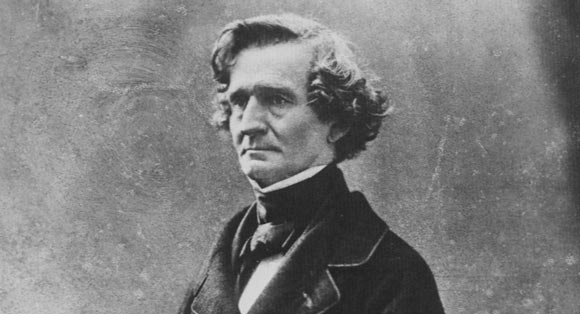
Louis-Hector Berlioz was a French composer: an ardent and brilliance of French romanticism. He was born on December 11, 1803 in war stricken country, France. The child entranced with music, developed deep empathy towards music and literature. He learnt to play guitar and flute as a child and became a self taught composer. He was captivated by Gluck’s operas and decided to become composer after completing his medicine degree at 17. Despite His father’s reluctance Berlioz applied and then was accepted as a pupil in Paris Conservatoire. Later, in 1830, he won Prix de Rome.
Hector Berlioz organized a concert in 1832 in Rome featuring in his own symphony. Harriet Smithson, an Irish actress was present in the same concert. Later they both met and fell in love and soon got married on October 3, 1833.
For the next decade Berlioz organized many concerts while creating succession of visionary masterpieces of musical composition. The 1830s saw Berlioz produce some of the very ingenious work in musical composition such as Harold en Italie (1834) and Requiem (1837). But Benvenuto Cellini (1836) was a big fail. In 1839, the violinist Paganini gave Berlioz 20,000 francs to write choral symphony Roméo et Juliette, which took him almost a year to complete. In 1840 in honor of 10th anniversary of July Revolution, Berlioz created a Grande symphonie funèbre et triomphale.
During 1840s Berlioz did several musical concerts tours to Prague, Vienna, Brussels and London. His dedication to music began affecting his personal life as his relationship with his wife started deteriorating. As he was working on different composition he found a new income source. He started working as a conductor in Germany, England and Russia. During this period he created La Damnation de Faust which was a complete fiasco and became a financial sinkhole after its premiere in 1846. Luckily, touring money came to the rescue. In 1850s the composition of L’Enfance du Christ triumph brought Berlioz back on his feet which elected him as a member of Institut de France. This helped him in earning member’s stipends. It also assisted him in modicum of monetary security.
As the time went by Berlioz was able to devote himself to his career. He finished the unfinished master piece of Roman poet and in 1862 he produced Les Troyens based on Virgil’s Aeneid. He again returned to William Shakespeare, creating the opera Béatrice et Bénédict which made a successful debut in Germany in 1862.
In 1868, after completing many European tours, the lonesome, divorced Berlioz returned to Paris. His second wife died in 1862. His only child named Luis also passed away some years later in 1867. Although his health was in continuous declination, Berlioz kept on producing his work in Vienna (1866), and then later travelled to Petersburg and Moscow (1867-1868). Back in Paris in 1868, he was a walking ghost and as the time slowly walked its paces paralysis gradually overcame his life. Although, Hector Berlioz’s compositional style has sometimes been considered idiosyncratic, extensive melodies of erratic length, yet his striking and innovative expression of music accounts for feeling of attraction that produces listener towards itself. Though the innovation of his work may have worked against him during his life, yet the appreciation of his music continued to grow after his death.